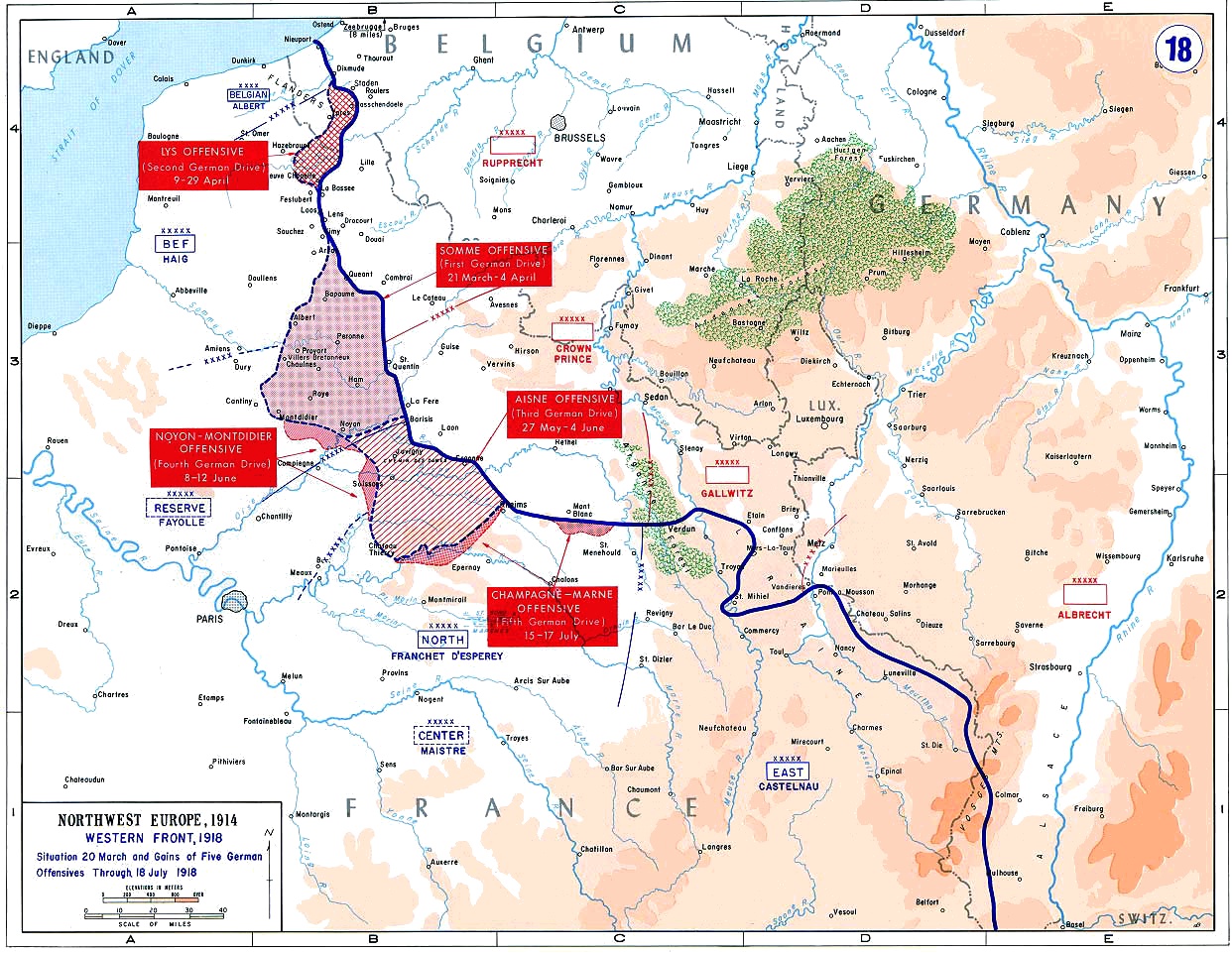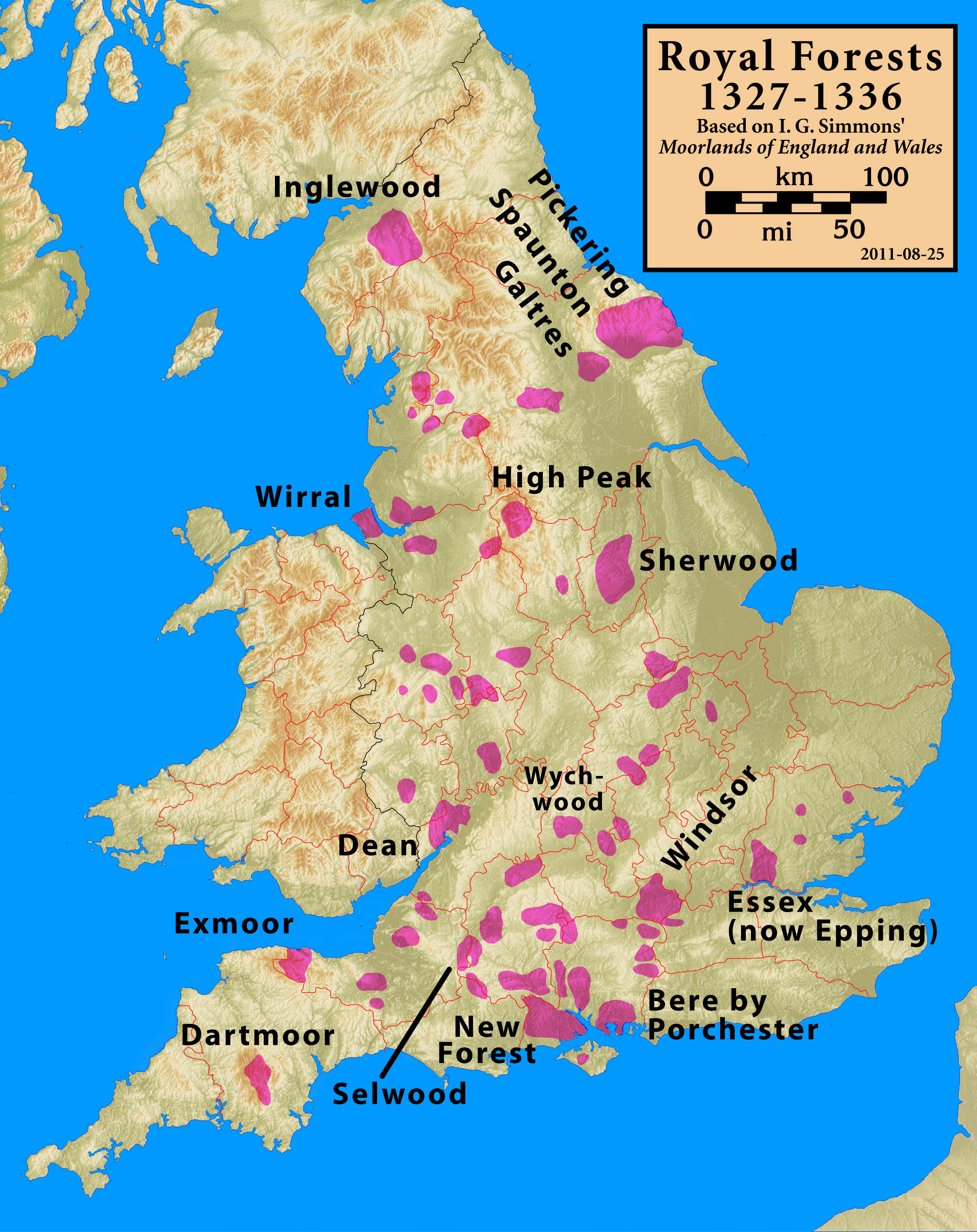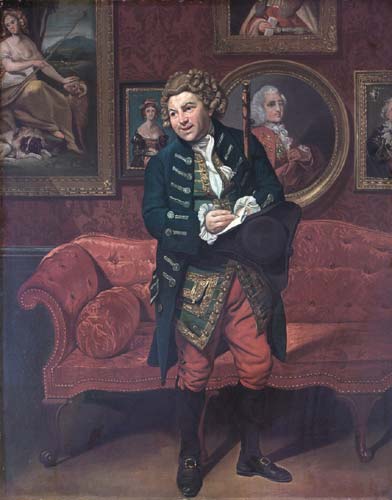|
Journey’s End
''Journey's End'' is a 1928 dramatic play by English playwright R. C. Sherriff, set in the trenches near Saint-Quentin, Aisne, towards the end of the First World War. The story plays out in the officers' dugout of a British Army infantry company from 18 March 1918 to 21 March 1918, providing a glimpse of the officers' lives in the last few days before Operation Michael. The play was first performed at the Apollo Theatre in London by the Incorporated Stage Society on 9 December 1928, starring a young Laurence Olivier, and soon moved to other West End theatres for a two-year run. It was included in Burns Mantle's ''The Best Plays of 1928–1929''. The piece quickly became internationally popular, with numerous productions and tours in English and other languages. A 1930 film version was followed by other adaptations, and the play set a high standard for other works dealing with similar themes, and influenced playwrights including Noël Coward. It was Sherriff's seventh play ... [...More Info...] [...Related Items...] OR: [Wikipedia] [Google] [Baidu] |
Operation Michael
Operation Michael was a major German military offensive during the First World War that began the German Spring Offensive on 21 March 1918. It was launched from the Hindenburg Line, in the vicinity of Saint-Quentin, France. Its goal was to break through the Allied (Entente) lines and advance in a north-westerly direction to seize the Channel Ports, which supplied the British Expeditionary Force (BEF) and to drive the BEF into the sea. Two days later General Erich Ludendorff, the chief of the German General Staff, adjusted his plan and pushed for an offensive due west, along the whole of the British front north of the River Somme. This was designed to first separate the French and British Armies before continuing with the original concept of pushing the BEF into the sea. The offensive ended at Villers-Bretonneux, to the east of the Allied communications centre at Amiens, where the Allies managed to halt the German advance; the German Army had suffered many casualties and was ... [...More Info...] [...Related Items...] OR: [Wikipedia] [Google] [Baidu] |
New Forest
The New Forest is one of the largest remaining tracts of unenclosed pasture land, heathland and forest in Southern England, covering southwest Hampshire and southeast Wiltshire. It was proclaimed a royal forest by William the Conqueror, featuring in the Domesday Book. It is the home of the New Forest Commoners, whose ancient rights of common pasture are still recognised and exercised, enforced by official verderers and agisters. In the 18th century, the New Forest became a source of timber for the Royal Navy. It remains a habitat for many rare birds and mammals. It is a biological and geological Site of Special Scientific Interest. Several areas are Geological Conservation Review and Nature Conservation Review sites. It is a Special Area of Conservation, a Ramsar site and a Special Protection Area. Copythorne Common is managed by the Hampshire and Isle of Wight Wildlife Trust, Kingston Great Common is a national nature reserve and New Forest Northern Commons is managed b ... [...More Info...] [...Related Items...] OR: [Wikipedia] [Google] [Baidu] |
Prince Of Wales Theatre
The Prince of Wales Theatre is a West End theatre in Coventry Street, near Leicester Square in London. It was established in 1884 and rebuilt in 1937, and extensively refurbished in 2004 by Sir Cameron Mackintosh, its current owner. The theatre should not be confused with the former Scala Theatre in London that was known as the ''Prince of Wales Royal Theatre'' or ''Prince of Wales's Theatre'' from 1865 until its demolition in 1903. History Phipps' theatre The first theatre on the site opened in January 1884 when Charles J. Phipps, C.J. Phipps built the Prince's Theatre for actor-manager Edgar Bruce. It was a traditional three-tier theatre, seating just over 1,000 people. The theatre was renamed the Prince of Wales Theatre in 1886 after the future Edward VII of the United Kingdom, Edward VII. Located between Piccadilly Circus and Leicester Square, the theatre was favourably situated to attract theatregoers. The first production in the theatre was an 1884 revival of W. S. ... [...More Info...] [...Related Items...] OR: [Wikipedia] [Google] [Baidu] |
James Curtis (biographer)
James Curtis is an American biographer. Born in Los Angeles, California, Curtis writes about important figures from the early days of film. Work Curtis's publications include biographies of comedian W. C. Fields, director and screenwriter Preston Sturges, director James Whale, production designer William Cameron Menzies, actor Spencer Tracy. and comedian Mort Sahl. Curtis spent six years researching and writing ''Spencer Tracy: A Biography'' (2011). Film critic Leonard Maltin Leonard Michael Maltin (born December 18, 1950) is an American film critic and film historian, as well as an author of several mainstream books on cinema, focusing on nostalgic, celebratory narratives. He is perhaps best known for his book of fi ... praised the work, saying in his review, "It represents a high-water mark in this field: a scrupulously researched life story that is also well-written and completely absorbing, through 878 pages of text". He received the Special Jury Prize of the Theatre Libr ... [...More Info...] [...Related Items...] OR: [Wikipedia] [Google] [Baidu] |
Colin Clive
Colin Clive (born Colin Glenn Clive-Greig; 20 January 1900 – 25 June 1937) was a British stage and screen actor. His most memorable role was Henry Frankenstein, the creator of the monster, in the 1931 film ''Frankenstein'' and its 1935 sequel, ''Bride of Frankenstein''. Early life Clive was born in Saint-Malo, France, to an English colonel, Colin Philip Greig, and his wife, Caroline Margaret Lugard Clive. He attended Stonyhurst College and subsequently Royal Military Academy Sandhurst, where an injured knee disqualified him from military service and contributed to his becoming a stage actor."Colin Clive," ''The Stage'' (1 July 1937), p. 7. bituary/ref> He was a member of the Hull Repertory Theatre Company for three years. Clive created the role of Steve Baker, the white husband of racially mixed Julie LaVerne, in the first London production of ''Show Boat''; the production featured Cedric Hardwicke and Paul Robeson. Clive first worked with James Whale in the Savoy Theatre ... [...More Info...] [...Related Items...] OR: [Wikipedia] [Google] [Baidu] |
Maurice Evans (actor)
Maurice Herbert Evans (3 June 1901 – 12 March 1989) was an English actor, noted for his interpretations of Shakespearean characters. His best-known screen roles are Dr. Zaius in the 1968 film ''Planet of the Apes'' and Samantha Stephens's father, Maurice, on ''Bewitched''. Early years Evans was born at 28 Icen Way in Dorchester, Dorset. He was the son of Laura (Turner) and Alfred Herbert Evans, a Welsh dispensing chemist and keen amateur actor who made adaptations of novels by Thomas Hardy for the local amateur company. Young Maurice made his first stage appearance as a small boy in '' Far from the Madding Crowd''. He first appeared on the stage in 1926 at the Cambridge Festival Theatre and joined the Old Vic Company in 1934, playing Hamlet, Richard II, and Iago. He was selected by Terence Gray to appear in the opening production in November 1926 at the Festival Theatre, taking the part of Orestes in two parts of the sensational production of the ''Oresteia'' of Aeschylus ... [...More Info...] [...Related Items...] OR: [Wikipedia] [Google] [Baidu] |
George Zucco
George Zucco (11 January 1886 – 27 May 1960) was a British character actor who appeared in plays and 96 films, mostly American-made, during a career spanning over two decades, from the 1920s to 1951. In his films, he often played a suave villain, a member of nobility, or a mad doctor. Early life and family Zucco was born in Manchester, Lancashire, on 11 January 1886. His mother Marian (née Rintoul) ran a dressmaking business; it is claimed she was a former lady-in-waiting to Queen Victoria, but this is untrue, as the honour was only accessible to titled ladies of high rank (duchesses, marchionesses, countesses, viscountesses, and baronesses). His father, George De Sylla Zucco, was a Greek merchant from Corfu who became a naturalised British subject in 1865. Zucco debuted on the Canadian stage in 1908 in a stock theater company. In 1910, he entered the United States for the first time from Canada, bound for Seattle, Washington, where he soon appeared in plays such as ... [...More Info...] [...Related Items...] OR: [Wikipedia] [Google] [Baidu] |
Savoy Theatre
The Savoy Theatre is a West End theatre in the Strand in the City of Westminster, London, England. The theatre was designed by C. J. Phipps for Richard D'Oyly Carte and opened on 10 October 1881 on a site previously occupied by the Savoy Palace. Its intended purpose was to showcase the popular series of comic operas of Gilbert and Sullivan, which became known as the Savoy operas. The theatre was the first public building in the world to be lit entirely by electricity. For many years, the Savoy Theatre was the home of the D'Oyly Carte Opera Company, which continued to be run by the Carte family for over a century. Richard's son Rupert D'Oyly Carte rebuilt and modernised the theatre in 1929, and it was rebuilt again in 1993 following a fire. It is a Grade II* listed building. In addition to ''The Mikado'' and other famous Gilbert and Sullivan premières, the theatre has hosted such premières as the first public performance in England of Oscar Wilde's '' Salome'' (1931) and No� ... [...More Info...] [...Related Items...] OR: [Wikipedia] [Google] [Baidu] |
Maurice Browne
Maurice Browne (12 February 1881 – 21 January 1955), born in Reading, England, was best known as a theater producer in the United States and the UK. The Cambridge-educated Browne was also a poet, actor, and theater director. He has been credited, along with his then-wife Ellen Van Volkenburg, with being the founder of the Little Theatre Movement in America through his work with the Chicago Little Theatre. Browne and Van Volkenburg went on to found the department of drama at the Cornish School in Seattle in 1918. Browne's greatest triumph came in 1929 when he produced '' Journey's End'', by R. C. Sherriff Robert Cedric Sherriff, FSA, FRSL (6 June 1896 – 13 November 1975) was an English writer best known for his play ''Journey's End'', which was based on his experiences as an army officer in the First World War. He wrote several plays, many nove ... in London.Browne, Maurice. ''Too Late to Lament: An Autobiography''. London, Gollancz, 1955, pp. 306-309. References *B ... [...More Info...] [...Related Items...] OR: [Wikipedia] [Google] [Baidu] |
James Whale
James Whale (22 July 1889 – 29 May 1957) was an English film director, theatre director and actor, who spent the greater part of his career in Cinema of the United States, Hollywood. He is best remembered for several horror films: ''Frankenstein (1931 film), Frankenstein'' (1931), ''The Old Dark House (1932 film), The Old Dark House'' (1932), ''The Invisible Man (1933 film), The Invisible Man'' (1933) and ''Bride of Frankenstein'' (1935), all considered classics. Whale also directed films in other genres, including the 1936 Show Boat (1936 film), film version of the musical ''Show Boat''. Whale was born into a large family in Dudley, Worcestershire now Metropolitan Borough of Dudley. He discovered his artistic talent early on and studied art. With the outbreak of World War I he enlisted in the British Army and became an officer. He was captured by the Germans and during his time as a prisoner of war he realised he was interested in drama. Following his release at the end ... [...More Info...] [...Related Items...] OR: [Wikipedia] [Google] [Baidu] |
George Bernard Shaw
George Bernard Shaw (26 July 1856 – 2 November 1950), known at his insistence simply as Bernard Shaw, was an Irish playwright, critic, polemicist and political activist. His influence on Western theatre, culture and politics extended from the 1880s to his death and beyond. He wrote more than sixty plays, including major works such as ''Man and Superman'' (1902), ''Pygmalion'' (1913) and '' Saint Joan'' (1923). With a range incorporating both contemporary satire and historical allegory, Shaw became the leading dramatist of his generation, and in 1925 was awarded the Nobel Prize in Literature. Born in Dublin, Shaw moved to London in 1876, where he struggled to establish himself as a writer and novelist, and embarked on a rigorous process of self-education. By the mid-1880s he had become a respected theatre and music critic. Following a political awakening, he joined the gradualist Fabian Society and became its most prominent pamphleteer. Shaw had been writing plays for years ... [...More Info...] [...Related Items...] OR: [Wikipedia] [Google] [Baidu] |




